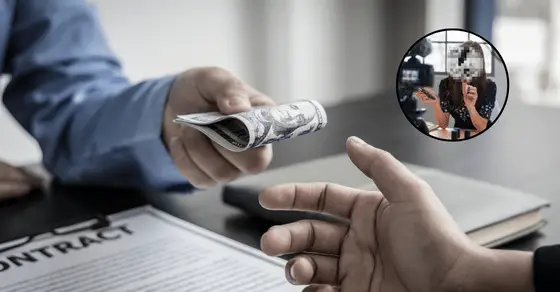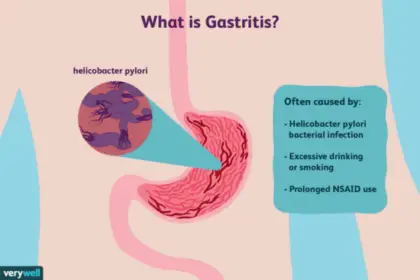Would you still trust a company that’s been caught lying to the public — not once, but dozens of times?
What if you learned that the same corporations now pay your favorite online “experts” and “influencers” to lie for them?
That’s exactly what’s happening right now.
Big Pharma and Big Food have realized one powerful truth: people no longer trust them. So instead of earning your trust back… they buy it.
Through influencer marketing, social media partnerships, and disguised “educational” content, billion-dollar corporations now pay doctors, dietitians, and health creators to sell their version of the truth — often without disclosure.
And the scary part? It’s working.
The Business of Buying Trust
People are skeptical of drug companies and processed food brands — but they do trust people. Especially “real,” relatable figures who seem like they care.
That’s why these industries have shifted billions of dollars from traditional advertising to social media marketing.
Because if you won’t believe the corporations… they’ll find someone you will believe.
The Money Behind the Manipulation
Since the year 2000, the pharmaceutical industry has paid over $126 billion in fines and penalties, including $60 billion related to patient injury, fraud, and illegal marketing.
That’s not a few isolated mistakes — that’s an industry pattern.
Yet even after paying billions in fines, these same companies now funnel billions more into controlling health narratives online.
They’ve traded TV commercials for Instagram posts, and news segments for “trusted creators.”
Influencers for Hire: The New Propaganda Machine
Here’s how it works.
Big Pharma and Big Food don’t usually pay influencers directly. Instead, they work through public relations (PR) agencies and marketing firms that specialize in influencer outreach.
These firms find health creators with large audiences — doctors, nurses, dietitians, wellness coaches — and offer “collaborations.” The influencer gets pre-approved talking points, scripts, and sometimes training to ensure they stay “on message.”
They’re told to keep the tone casual, authentic, and natural — so followers think it’s their honest opinion.
And often, no disclosure is made that it’s a paid partnership.
According to research, more than 40% of health influencers don’t properly disclose paid promotions. That means almost half of the “health advice” you see online might be influenced by hidden corporate interests.
When Lies Wear Lab Coats
One of the most striking examples is Dr. Mike — an osteopath with millions of YouTube subscribers.
He once claimed he’d never been paid by a vaccine company. But records show he received over $1 million from Abbott Laboratories, a major pharmaceutical manufacturer that sells numerous vaccines and medical products.
Abbott paid him (and many others) to create “educational” videos promoting pharmaceutical viewpoints.
The catch? None of those videos disclosed the payments.
Would you trust someone’s “honest” medical advice if you knew a vaccine manufacturer paid them seven figures?
The FTC Steps In — Barely
In late 2023, the Federal Trade Commission (FTC) issued warning letters to the American Beverage Association, the Canadian Sugar Institute, and 12 dietitians who had been promoting aspartame and sugar as safe — without disclosing they were being paid.
These dietitians — who were supposed to be independent experts — were literally on the payroll of soda and sugar organizations.
Their job? Reassure the public that diet sodas and sugary foods were fine in moderation.
So the next time you see a dietitian online saying “a little sugar won’t hurt you,” you might wonder who’s signing their checks.
The Companies and Their Products
To understand how deep this goes, here’s a breakdown of the major corporations involved and their key products that they’ve been quietly pushing through influencers:
Pfizer
- Products: Lipitor (cholesterol drug), Zoloft (antidepressant), Prevnar (pneumonia vaccine), Comirnaty (COVID-19 vaccine).
- History: Over 100 legal violations totaling $11 billion in fines, including false advertising and kickbacks to doctors.
- Influencer ties: Sponsors “science communicators” and social media doctors to defend vaccines and medications online.
Johnson & Johnson
- Products: Tylenol, Band-Aid, Johnson’s Baby Powder, and various vaccines.
- History: Fined for misleading marketing and sued over baby powder linked to ovarian cancer.
- Influencer ties: Pays health creators to restore trust in their brand and “debunk misinformation.”
Merck
- Products: Gardasil (HPV vaccine), Keytruda (cancer therapy), Januvia (diabetes medication).
- History: Fined billions for false claims and unsafe drug promotion.
- Influencer ties: Funds campaigns that promote vaccine compliance and pharmaceutical “education.”
Abbott Laboratories
- Products: Similac, Pediasure, Ensure, flu vaccines, and diagnostic kits.
- History: Accused of price fixing, product contamination, and false claims.
- Influencer ties: Paid Dr. Mike and dozens of creators to normalize vaccines and nutritional products.
Coca-Cola
- Products: Coca-Cola, Diet Coke, Powerade, Minute Maid, Smartwater.
- History: Paid influencers to push the “energy balance” myth — claiming obesity is due to lack of exercise, not sugar.
- Influencer ties: Funds dietitians and organizations to downplay sugar’s role in obesity and diabetes.
PepsiCo
- Products: Pepsi, Gatorade, Tropicana, Lay’s, Mountain Dew.
- History: Spends heavily on partnerships with nutrition associations to promote “moderation” messaging.
- Influencer ties: Supports creators who “debunk sugar myths.”
Hershey’s
- Products: Hershey’s bars, Reese’s, Kit Kat, chocolate syrups.
- History: Promotes cocoa as “heart-healthy” through paid partnerships with dietitians.
- Influencer ties: Sponsors nutrition campaigns suggesting chocolate is part of a balanced diet.
General Mills
- Products: Cheerios, Lucky Charms, Nature Valley, Yoplait.
- History: Markets ultra-processed cereals as “heart-healthy.”
- Influencer ties: Funds organizations that set dietary guidelines — like the Academy of Nutrition and Dietetics.
The American Heart Association (AHA)
- Ties: Funded by companies producing seed and vegetable oils.
- Message: Promotes polyunsaturated oils (like canola and soybean) while discouraging saturated fats — conveniently supporting its donors.
The Academy of Nutrition and Dietetics (AND)
- Members: Over 100,000 registered dietitians.
- Funding sources: Abbott, Coca-Cola, PepsiCo, Hershey’s, and General Mills.
- Conflict: Shapes U.S. nutrition guidelines while accepting money from processed food manufacturers.
How Deep Does It Go?
The more you look, the more you realize: the entire system is built on influence — not integrity.
It’s not just a few bad actors. It’s a coordinated marketing machine.
The corporations pay PR agencies.
The agencies recruit influencers.
The influencers shape public opinion.
And the public keeps consuming.
It’s deception disguised as education.
The Psychological Trick
Here’s why it works so well:
When information comes from a brand, we resist. When it comes from a friendly face — we absorb.
That’s why influencer marketing isn’t just powerful; it’s psychologically engineered.
It bypasses skepticism and creates emotional trust. You’re not being sold something — you’re being guided by someone you “like.”
The Real Question
Now ask yourself —
Would you trust them if they lie to you?
Would you trust them if they pay people to lie to you?
Because that’s exactly what’s happening.
These companies know their reputations are shattered. But if they can buy your favorite influencer, they can buy your trust — and that’s worth far more than truth.
The Cost of Ignoring It
When corporations control the conversation, real health suffers.
- Natural medicine gets labeled “pseudoscience.”
- Processed foods get rebranded as “balanced nutrition.”
- Synthetic chemicals are defended as “safe in small amounts.”
And the cycle continues.
People keep getting sicker, while the companies cash in — on both ends. Big Food makes you sick, Big Pharma sells you the cure.
What You Can Do
- Question everything. If someone online defends a product, check if they’re sponsored.
- Follow independent health educators. Those who prioritize truth over trends.
- Support content that exposes corruption. Awareness is power.
Because the moment you stop asking questions, manipulation wins.
Final Thoughts
We live in an era where truth is a marketing strategy — and deception is a business model.
Pharmaceutical and food giants have turned your favorite influencers into their spokespersons, often without you realizing it. They lie, manipulate, and buy credibility — while pretending to “educate.”
So, ask yourself one more time:
Would you trust them if they lie to you?
Or if they pay people to lie to you?
Because if a company has to purchase your trust… it never deserved it in the first place.
Watch the full exposé here:
🎥 Big Pharma Pays Big $$$ to Social Media Influencers (You’ll Never Guess Who)




